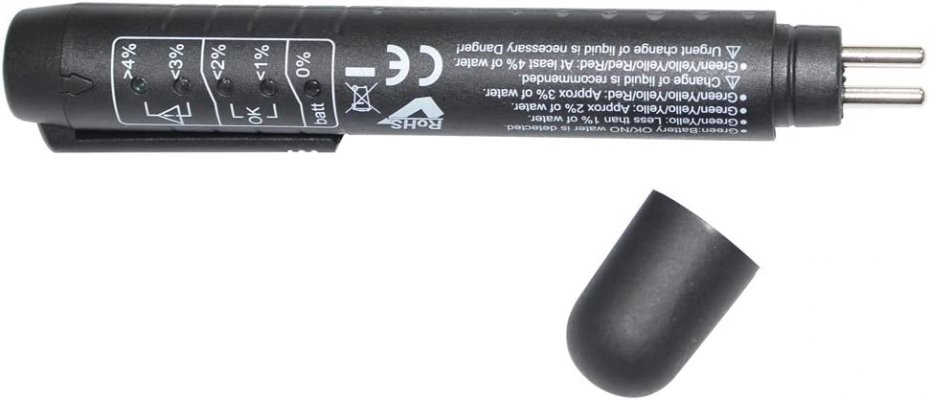62Blazer
Senior Member
You are making stuff up now.......and you still didn't post anything about scheduled maintenance requirements for brake fluid. All of the above statements basically say IF the fluid gets contaminants from an unique situation you should flush the system out. No different if you get a bunch of water in your engine.....guess what, the engine oil gets contaminated and looks weird, and you should flush out the system to get the water out. However you don't do regular scheduled maintenance for it. The air filter is also a very poor example as by definition a "filter" collects contaminants, and those contaminants come from what is in the air that is constantly being cycled through an air filter. Brake fluid is not exposed to air or any normal sources of contaminants (and also why there is no filter in a brake system........).I'm curious who said it would explode or whatever other hyperbole you've got going on there?
As far as manuals, well:
Camaro service manual:
Note the Camaro is a bit different in that the brake fluid is also hydraulic clutch fluid, at least in my generation.
RAM manual doesn't have a service interval, but does acknowledge "wet" brake fluid in a manner very similar to what I said:
Would you like to argue brake fluid doesn't draw moisture over the years while inside the car's braking system? Or is the OEM also just being hyperbolic figuring 'wet' brake fluid will turn the truck into a nun seeking missile?
A lot of people neglect a lot of basic maintenance and see no problem. You think Joe and Sally AverageDude are changing their air filters on schedule? That a dirty air filter reduces performance and fuel economy small amounts is beyond intelligent debate, but they won't 'see a problem' because it's so minor over time they don't notice. Seriously, not that deep. Change your brake fluid.
As I stated several times:
Yes, it is a good idea to replace the brake fluid at some point in the vehicle's life because it's cheap and easy. However it's not something that needs done every year, and it's pretty rare for "bad" brake fluid to cause issues, or be the only issue going on. If the brake fluid is really bad than likely something else in the brake system is in even worse shape.
A little common sense goes a long way in this. Sure, if the normally clear brake fluid looks like used gear oil with chunks floating around in it then change it!
Yes, brake fluid absorbs moisture....but to absorb any significant amount of moisture it has to be exposed to significant amounts of moisture. On a properly sealed brake system where is all of this moisture coming from? Even if the master cylinder cap is not 100% sealed you are still only exposing the brake fluid to a very small amount of moisture....a very small amount of air that contains some percentage of moisture. Not like the reservoir is under water with a constant drip of pure water going into it. By the way, don't say condensation from temperature.........condensation and moisture doesn't magically form inside a sealed vessel. If there is zero moisture inside a completely sealed vessel, there simply can be no condensation or moisture develop inside that sealed vessel regardless of how you change the temperature of it. Even if you get condensation inside the vessel it is only equal to the amount of moisture already in it, with it just changing form (suspended in the air versus water droplets).
In regards to my comment about exploding and such, ummm who made the comments about all of these wrecks caused by bad brake fluid? Sure, I was trying to get my point across but isn't scare tactics about how you will wreck your vehicle because of bad brake fluid pretty much equivalent to saying something will explode if you don't do it?







